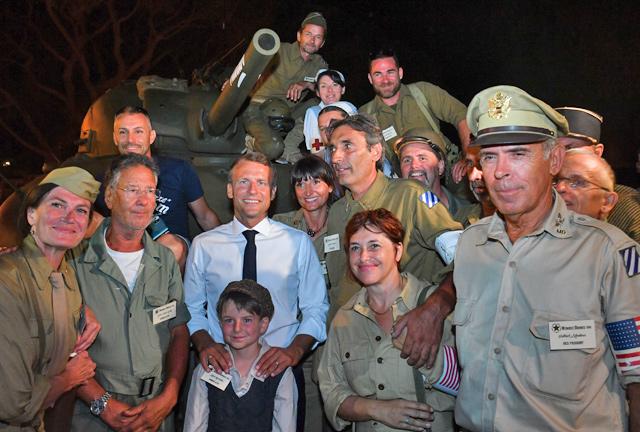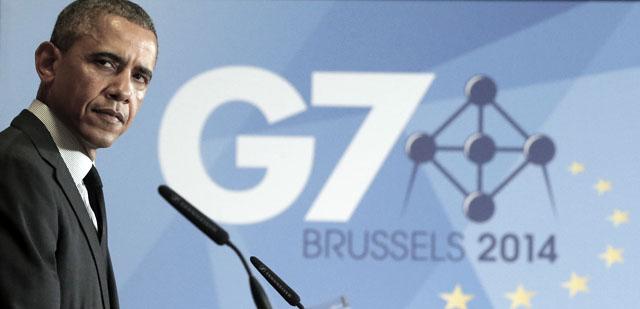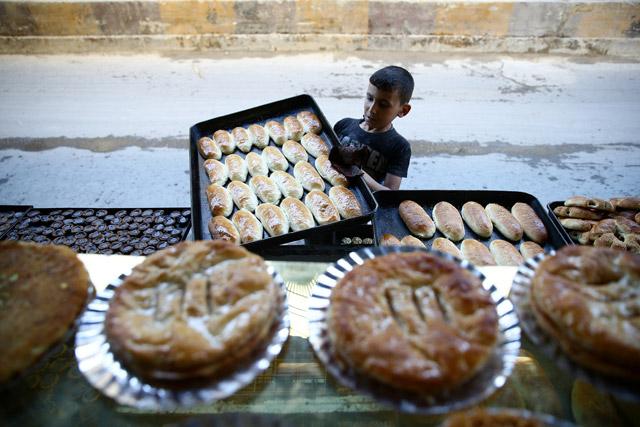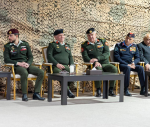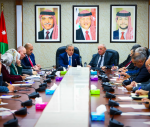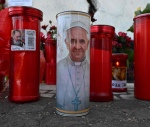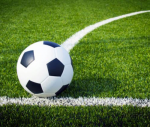You are here
Russia readmission divides leaders at Macron's G-7
By AFP - Aug 26,2019 - Last updated at Aug 26,2019
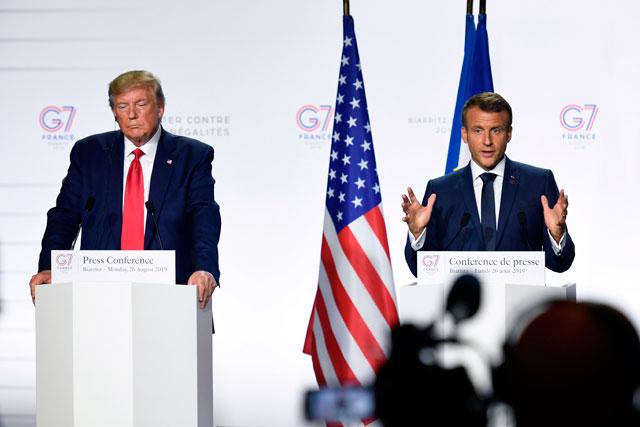
France's President Emmanuel Macron (left) and US President Donald Trump give a joint press conference in Biarritz, southwest France, on Monday (AFP photo)
BIARRITZ, France — The future reintegration of Russia into the elite G-7 group of the world's rich nations has proved an explosive issue at a summit in southern France, with leaders divided over whether to allow Moscow back in after its 2014 expulsion.
Russia was kicked out of what was the Group of Eight (G-8), as Moscow was holding its presidency after it annexed Ukraine's Black Sea peninsula of Crimea, a move never recognised by the international community.
But US President Donald Trump, who will host the next Group of Seven summit in 2020, has spoken out in favour of readmitting Russia.
And the host of this year's event, French President Emmanuel Macron, has also said it would be appropriate to include Russia if key conditions were met.
However, Britain, whose ties with Russia hit a new low following the 2018 chemical poisoning on its territory of Russian ex-double agent Sergei Skripal, which London blamed on the Kremlin, has spoken out against Moscow's reinclusion.
'Difficult talks'
The issue came to a head during lengthy discussions at the leaders' first official G-7 dinner on Saturday evening, where the premiers and heads of state — also including Germany, Japan, Italy and Canada — put forward "forthright" positions on the issue, said a source close to the discussions, asking not to be named.
"You did very well last night President Macron," Johnson told his French host on Sunday morning as the leaders met for a session to discuss the world economy. "That was a difficult one."
Sources later confirmed that Johnson had been referring to Macron's stewardship of the dinner in the debate over Russia as the leaders pushed their "strong" views on the matter.
Diplomatic sources said the leaders agreed to be in favour of reinforcing coordination with Russia, but that it was too early for reintegration.
"I think it's advantageous [for Russia to rejoin] but other people don't necessarily agree with me at this time," said Trump as the G-7 wound up on Monday. "We will see what happens."
Macron had said in the run-up to the summit that it would be "appropriate" for Russia to rejoin the group and less than a week before the event held several hours of talks with Russian President Vladimir Putin at his summer residence.
But Macron said first a solution had to be found for Ukraine, where in addition to the annexation of Crimea, pro-Moscow separatists declared unrecognised breakaway statelets in the eastern regions of Donetsk and Lugansk.
German Chancellor Angela Merkel, who shares Britain's wariness about Russia rejoining the group, said herself, Macron, Putin and new Ukrainian President Volodymyr Zelensky would soon meet in a bid to relaunch the peace process.
'Is Russia on that path?'
Moscow had joined the group in 1998 — when the G-7 became the G- 8 — under the presidency of Boris Yeltsin as the West tried to anchor post-Soviet Russia into the international community.
But tensions intensified throughout Putin's ascendancy in Russia and he skipped a 2012 G-8 summit hosted by the United States shortly after he was reelected president following a stint as prime minister.
Ironically, Russia held the G-8 presidency in 2014 but a summit that it was preparing to hold in June that year in Sochi never took place as it was expelled from the group. The other seven countries instead met in Brussels.
Like Britain, Canada also strongly opposes readmitting Russia unless seized Ukrainian territory is handed back.
EU Council President Donald Tusk meanwhile said that "under no condition" could he accept the logic that the status quo in Ukraine be accepted and Russia return to the G-8.
"The reasons why Russia was disinvited in 2014 are still valid," said Tusk.
"When Russia was invited to the G-7 for the first time [under Yeltsin] it was believed that it would pursue the path of liberal democracy, rule of law and human rights.
"Is there anyone among us, who can say out of full conviction, not out of business calculation, that Russia is on that path?" Tusk asked, retorting it should be Zelensky, not Putin, who is invited to the next G-7.
Related Articles
PARIS — French President Emmanuel Macron will attempt to convince Russia to accept Ukraine’s overtures of dialogue when he meets Vladim
The United States and its allies used the first Group of Seven (G-7) meeting without Russia in 17 years to condemn Moscow’s actions in Ukraine and threaten hard-hitting sanctions if President Vladimir Putin does not help restore stability.
VERSAILLES, France — France would respond immediately to any use of chemical weapons in Syria, French President Emmanuel Macron said Monday


